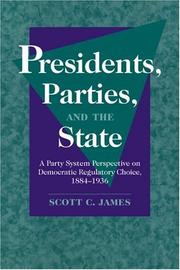| Listing 1 - 4 of 4 |
Sort by
|
Book
Year: 2000 Publisher: [Washington, D.C.] : Federal Trade Commission, Bureau of Consumer Protection, Office of Consumer and Business Education,
Abstract | Keywords | Export | Availability | Bookmark
 Loading...
Loading...Choose an application
- Reference Manager
- EndNote
- RefWorks (Direct export to RefWorks)
The U.S. Federal Trade Commission (FTC) presents information in PDF format for businesses on how to disclose information about rebates and other offers. The FTC covers rebated computers and Internet service and disclosures in print, television, and Internet advertising.
Microcomputers --- Rebates. --- Government information. --- Advertising. --- Advertisers. --- Marketing. --- United States. Federal Trade Commission.
Book
Year: 2000 Publisher: [Washington, D.C.] : Federal Trade Commission, Bureau of Consumer Protection, Office of Consumer and Business Education,
Abstract | Keywords | Export | Availability | Bookmark
 Loading...
Loading...Choose an application
- Reference Manager
- EndNote
- RefWorks (Direct export to RefWorks)
The U.S. Federal Trade Commission presents information about the rules for Web site operators from the 1998 Children's Online Privacy Protection Act. The commission highlights what the law requires as of April 21, 2000. The law includes actions that the Web site operators must take and that parents should take.
Book
Year: 2000 Publisher: [Washington, D.C.] : Federal Trade Commission, Bureau of Consumer Protection, Office of Consumer and Business Education,
Abstract | Keywords | Export | Availability | Bookmark
 Loading...
Loading...Choose an application
- Reference Manager
- EndNote
- RefWorks (Direct export to RefWorks)
The Bureau of Consumer Protection of the U.S. Federal Trade Commission (FTC) presents the full text of the fact sheet entitled "Energy Efficient Light Bulbs: A Bright Idea," published in June 2000 in PDF format. The fact sheet discusses energy efficient light bulbs. The types of bulbs covered include regular incandescent bulbs, incandescent spotlights and floodlights, halogen bulbs, and compact fluorescent bulbs.

ISBN: 0511825781 0511571496 052166277X 0521030021 Year: 2000 Publisher: Cambridge : Cambridge University Press,
Abstract | Keywords | Export | Availability | Bookmark
 Loading...
Loading...Choose an application
- Reference Manager
- EndNote
- RefWorks (Direct export to RefWorks)
Dominant theories of regulatory choice privilege the goals and actions of district-oriented legislators and organized groups. Presidents, Parties, and the State challenges this conventional frame, placing presidential elections and national party leaders at the centre of American regulatory state development. Historically the 'out-party' in national politics between 1884 and 1936, the Democratic party of Grover Cleveland, Woodrow Wilson and Franklin Roosevelt confronted a severe political quandary, one which pit long-term ideological commitments against short-term electoral opportunities. In short, Democrats, when in power, were forced to choose between enacting the regulatory agenda of their traditional party base, or legislating the programs of voting blocs deemed pivotal to the consolidation of national party power. Coalition-building imperatives drove Democratic leaders to embrace the latter alternative, prompting legislative intervention to secure outcomes consistent with national party needs. In the end, the electoral logic that fuelled Democratic choice proved consequential for the trajectory of American state development.
Presidents --- Administrative law --- Interstate commerce --- Administration --- Law, Administrative --- Public administration --- Public law --- Constitutional law --- History. --- Law and legislation --- Democratic Party (U.S.) --- United States. --- S.E.C. (Agency) --- SEC (Agency) --- S.E.C.O. (Agency) --- SECO (Agency) --- Securities and Exchange Commission (U.S.) --- U.S. Securities and Exchange Commission --- FTC --- Federal Trade Commission (U.S.) --- Federalʹnai︠a︡ torgovai︠a︡ komissii︠a︡ SShA --- Interstate Trade Commission, 1914 --- I.C.C. --- ICC --- Interstate Commerce Commission (U.S.) --- Demokratische Partei (U.S.) --- Partai Demokrat (U.S.) --- Republican Party (U.S. : 1792-1828) --- United States --- Politics and government --- Social Sciences --- Political Science
| Listing 1 - 4 of 4 |
Sort by
|

 Search
Search Feedback
Feedback About UniCat
About UniCat  Help
Help News
News